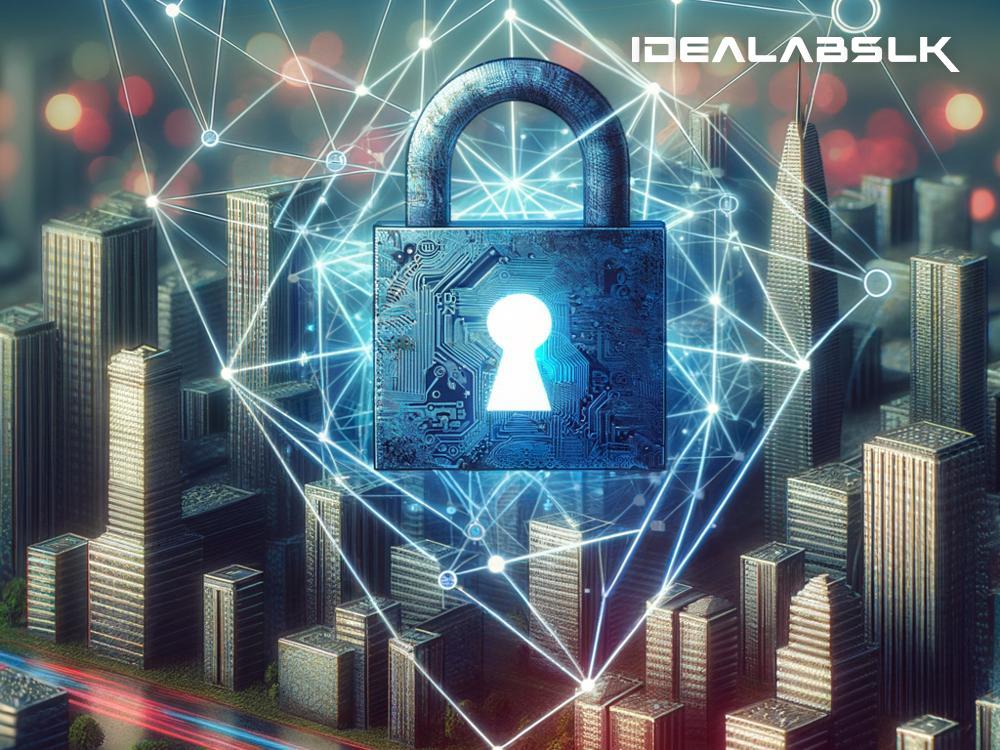Using Blockchain to Improve Real Estate Data Security: A Simplified Explanation
In recent years, the real estate industry has seen a transformative shift in how property transactions are handled, thanks to the integration of technology. Among the various technologies making a buzz, Blockchain stands out, especially when it comes to improving data security. But what exactly is Blockchain, and how can it redefine data security in real estate? Let’s dive into the world of Blockchain and real estate in simple English.
Understanding Blockchain in a Nutshell
Imagine a digital ledger that is very secure and cannot be tampered with, which records all transactions across a network. This digital ledger is known as Blockchain. It is a chain of blocks where each block contains transaction data, and once a block is added to the chain, the information it contains is virtually impossible to change. This attribute makes Blockchain incredibly secure and trustworthy.
The Current State of Real Estate Data Management
Traditionally, real estate transactions involve loads of paperwork and various intermediaries like brokers, legal advisers, and banks. This process is not only cumbersome but prone to errors, fraud, and data breaches. These problems highlight the need for a more secure and efficient system to manage real estate data. Enter Blockchain.
Blockchain to the Rescue
So, how exactly does Blockchain promise to improve data security in real estate? Here are a few key points:
-
Immutability: Once a transaction is recorded on a Blockchain, it cannot be altered or deleted. This immutability ensures the integrity of real estate data, making it nearly impossible for fraudulent activities to take place.
-
Transparency: While the data on the Blockchain is secure, it is also transparent. Anyone with permission can view transaction histories and asset information. This transparency builds trust among parties involved in real estate transactions.
-
Decentralization: Unlike traditional systems where data is stored in a central database, Blockchain distributes data across a network of computers. This decentralization significantly reduces the risk of data breaches, as there is no single point of failure.
-
Efficiency and Speed: Blockchain can streamline the entire process of real estate transactions by reducing paperwork and eliminating intermediaries. This not only makes transactions faster but also more secure.
-
Smart Contracts: These are self-executing contracts with the terms of the agreement directly written into code. In real estate, smart contracts can automate various processes, such as releasing funds only when certain conditions are met. This reduces the risk of fraud and ensures that all parties meet their obligations.
Real-World Applications of Blockchain in Real Estate
Blockchain is not just a theoretical concept; it is already being applied in real estate in several ways:
-
Property Records: Countries like Sweden are experimenting with Blockchain for recording property transactions. This provides a clear, immutable history of property ownership.
-
Tokenization of Real Estate Assets: Blockchain enables the division of property into tokens that represent ownership shares. This can lower barriers to real estate investment, allowing people to buy shares in a property just like stocks.
-
Real Estate Marketplaces: Blockchain-based platforms are emerging, facilitating direct transactions between buyers and sellers, reducing fees, and improving transaction speed.
Challenges and Limitations
Despite its numerous benefits, integrating Blockchain into real estate is not without challenges. Regulatory hurdles, the need for widespread adoption, and privacy concerns are some of the obstacles that need to be addressed. Furthermore, there's the task of convincing all stakeholders to trust and adopt this new technology.
The Future of Real Estate with Blockchain
The potential of Blockchain to improve data security in real estate is immense. As we move towards a more digital world, the demand for secure, efficient, and transparent transactions will only grow. Blockchain, with its unique qualities, could be the key to unlocking this future, transforming how we buy, sell, and manage properties.
In conclusion, the integration of Blockchain technology promises a revolution in real estate data security and management. By ensuring data integrity, enhancing transparency, and streamlining transactions, Blockchain is poised to address many of the current challenges in the real estate industry. While there are certainly challenges to overcome, the future of real estate looks brighter and more secure with Blockchain.

